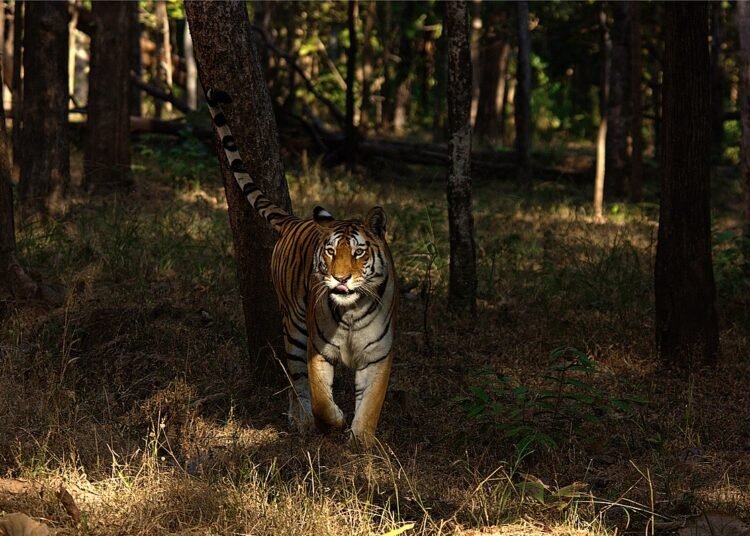The Pench Tiger Reserve (PTR) in Maharashtra has achieved a notable milestone by becoming India’s first Dark Sky Park. This recognition, bestowed upon the reserve, positions it as the fifth Dark Sky Park in Asia. The designation is a testament to PTR’s commitment to safeguarding the night sky and combating light pollution, creating an optimal environment for astronomy enthusiasts.
The International Union for Conservation of Nature (IUCN) underscores the intrinsic value of the night sky as a natural, cultural, and historical resource. In light of the escalating global threat of light pollution, PTR’s initiative to preserve natural darkness aligns with the IUCN’s vision for nature conservation, ecological integrity, and the well-being of communities.
Prabhu Nath Shukla, Deputy Director of PTR Maharashtra, highlighted the pressing global challenge of light pollution and its significant risk to the invaluable resource of the night sky. The Dark and Quiet Skies for Science and Society Working Group, led by the International Astronomical Union, has recommended the establishment of ‘Dark Sky Oases’ by national and local governments.
The Dark Sky Place certification, received by Pench Tiger Reserve, focuses on various aspects, including lighting policy, dark sky-friendly retrofits, outreach and education, and monitoring the night sky. As part of these measures, the reserve has inaugurated a night observatory funded by the district planning committee (DPC). The designated stargazing area near Bagholi enhances the overall experience for visitors and astronomy enthusiasts.
To address light pollution directly, more than 100 street and community lights in villages such as Wagholi, Sillari, Pipariya, and Khapa within the Paoni UC Range buffer area have been replaced. The new lights are designed to face the ground, mitigating light pollution and contributing to the conservation of the night sky.
Pench Tiger Reserve, also known as Pench National Park, holds a unique status as one of India’s premier tiger reserves. Spanning across two states, Madhya Pradesh and Maharashtra, the reserve is not only renowned for its wildlife but also serves as the backdrop for Rudyard Kipling’s The Jungle Book and The Second Jungle Book.
The concept of a Dark Sky Park revolves around restricting artificial light pollution in areas surrounding parks or observatories. These preserves aim to promote astronomy and provide optimal conditions for observing the night sky. India’s first dark-sky preserve, the Indian Astronomical Observatory (IAO) in Hanle, is a high-altitude astronomy station operated by the Indian Institute of Astrophysics. The IAO, situated in the Western Himalayas at an elevation of 4,500 meters (14,764 ft), stands as one of the world’s highest locations for optical, infrared, and gamma-ray telescopes.
Pench Tiger Reserve’s recognition as India’s first Dark Sky Park signifies a crucial step in balancing conservation efforts with the growing interest in astronomy. The measures implemented by the reserve contribute not only to protecting the night sky but also to providing an enriched experience for visitors and stargazers.














